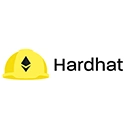Hardhat is a powerful development framework specifically designed for Ethereum smart contract development. It provides a comprehensive set of tools that streamline the entire development process, from writing and testing contracts to deploying them on the blockchain. Below are the key ways in which Hardhat facilitates smart contract development:
1. Project Initialization
Hardhat simplifies the process of setting up a new project. You can easily create a new Hardhat project with a single command:
npx hardhatThis command will prompt you to create a new project, and you can choose from different templates, such as a sample project or an empty project. This initial setup creates a structured directory for your contracts, scripts, and tests.
2. Smart Contract Compilation
Hardhat automatically compiles your Solidity smart contracts when you run the compile command:
npx hardhat compileThis command compiles all contracts in the contracts/ directory and generates the necessary artifacts in the artifacts/ folder. Hardhat supports multiple Solidity versions and allows you to specify the version in your configuration file.
Here’s an example of a simple Solidity contract:
// SPDX-License-Identifier: MIT
pragma solidity ^0.8.0;
contract SimpleStorage {
uint256 private storedData;
function set(uint256 x) public {
storedData = x;
}
function get() public view returns (uint256) {
return storedData;
}
}3. Testing Framework
Hardhat comes with a built-in testing framework that allows you to write tests for your smart contracts using Mocha and Chai. You can create test files in the test/ directory, enabling you to validate the functionality of your contracts.
Here’s an example of a test for the SimpleStorage contract:
const { expect } = require("chai");
const { ethers } = require("hardhat");
describe("SimpleStorage", function () {
it("Should return the correct stored value", async function () {
const SimpleStorage = await ethers.getContractFactory("SimpleStorage");
const simpleStorage = await SimpleStorage.deploy();
await simpleStorage.deployed();
await simpleStorage.set(42);
expect(await simpleStorage.get()).to.equal(42);
});
});You can run your tests using the following command:
npx hardhat test4. Local Blockchain Environment
Hardhat provides a local Ethereum network for testing and development. You can start the Hardhat Network using the following command:
npx hardhat nodeThis command starts a local blockchain where you can deploy your contracts and test them without the need for real ether. The network supports instant mining, allowing for rapid iteration during development.
5. Deployment Scripts
Hardhat allows you to write deployment scripts in JavaScript or TypeScript, making it easy to deploy your contracts to any Ethereum network. You can create a script in the scripts/ directory to handle the deployment process.
Here’s an example of a deployment script:
async function main() {
const SimpleStorage = await ethers.getContractFactory("SimpleStorage");
const simpleStorage = await SimpleStorage.deploy();
await simpleStorage.deployed();
console.log("SimpleStorage deployed to:", simpleStorage.address);
}
main()
.then(() => process.exit(0))
.catch((error) => {
console.error(error);
process.exit(1);
});6. Plugins and Extensibility
Hardhat supports a wide range of plugins that extend its functionality. You can easily integrate tools for tasks such as gas reporting, contract verification, and more. To install a plugin, you can use npm:
npm install --save-dev hardhat-gas-reporterAfter installing, you can configure the plugin in your hardhat.config.js file to enhance your development workflow.
Conclusion
Hardhat is an essential tool for Ethereum developers, providing a robust framework for smart contract development. With features like project initialization, smart contract compilation, testing, local blockchain environments, deployment scripts, and extensibility through plugins, Hardhat streamlines the development process and enhances productivity. By leveraging Hardhat, developers can focus on building innovative decentralized applications with confidence.

